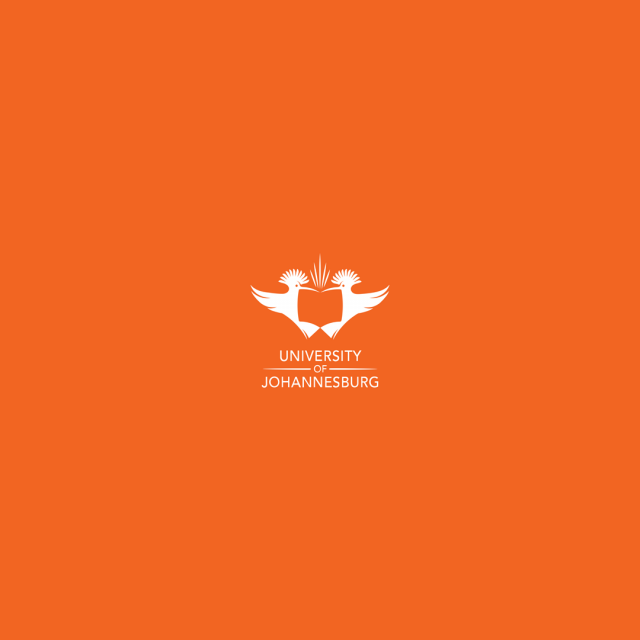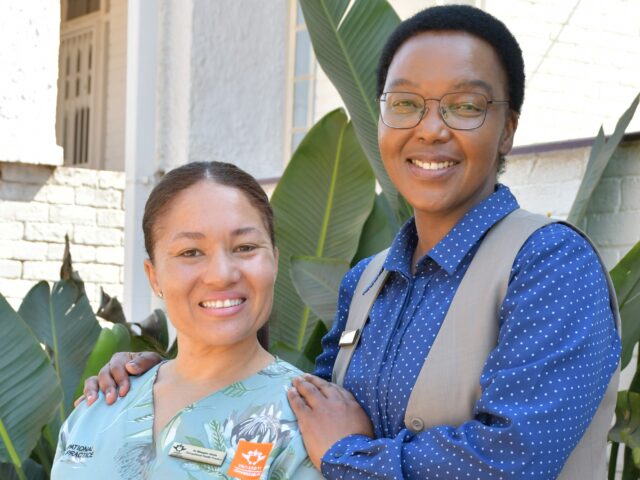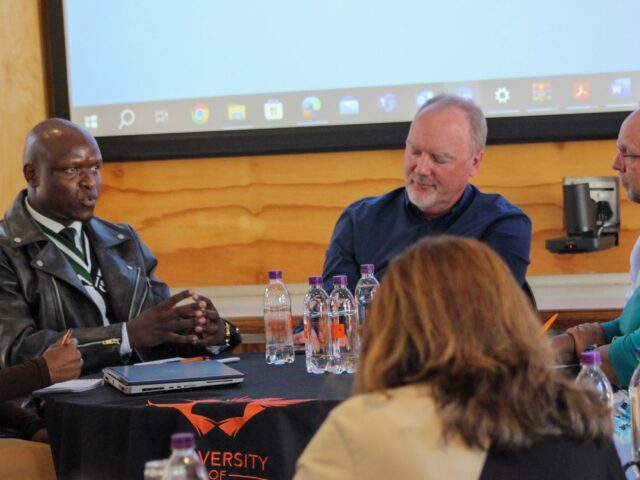Higher Certificate in Local Economic Development
Home » University Courses »General
Faculty Website: College of Business and Economics
Department: Department of Economics and Econometrics
Programme Level: Continuous Education Programmes
Programme Name: Higher Certificate in Local Economic Development
Programme Code: F34E1O
Medium of Facilitation: Online
NQF Level: 5
NQF Credits: 120
SAQA: 111174
Application Start Date: 1 April 2024
Application End Date: 28 February 2025
Campus: Online
Contacts: Mrs C Roux 011 559 3794
Email: carlienr@uj.ac.za
Duration of Study: 1 Year
Purpose
The purpose of this qualification is to prepare learners who do not comply with the minimum statutory or institutional admission requirements to access a Diploma and/ or Degree studies, or students who want to explore various career path options relating to Local Economic Development (LED) and Management Sciences.
This qualification will introduce learners to elementary concepts and principles of Local Economic Development, Marketing, Entrepreneurship, Business Management, Infrastructure and Accountancy. The qualification should also improve the learners’ basic proficiency in English, their general computer skills and their basic numeracy skills which are required for these fields.
Career Opportunities
Junior LED official/officer at a municipality; district municipality or provincial government / Junior Tourism official / Junior official in investment promotion / Junior official in regional development
Curriculum
The Qualification consists of the following ten compulsory modules at NQF Level 5, each worth 12 credits:
- English for Local Economic Development Practitioners
PURPOSE: Preparing for University demands a high level of academic English. This involves developing overall English skills with a strong emphasis on academic reading and writing, as well as note-taking, research and study skills. The aim of this module is to enable students to gain a background in English grammar and usage, to develop an ability to read texts critically with comprehension and insight, and to acquire skills in reading and writing at tertiary level. This module will enable students to apply English writing skills in any career relating to Local Economic Development and Management Sciences.
- Entrepreneurship for Local Economic Development Practitioners
PURPOSE: Entrepreneurship is important because it helps to drive the local economy, it allows people to bring creativity into the marketplace, it creates business entities with the potential to hire hundreds of people and it brings new products and services to the market. This module will equip students with a thorough introduction to entrepreneurship theories and how it relates to local economic development, as well as the entrepreneurial mind-set, in order to prepare students to successfully plan, launch and manage their own business venture or assist others to set up their own ventures.
- Fundamentals of Business Mathematics for Local Economic Development Practitioners
PURPOSE: Business mathematics strongly supports the growing trend of data analytics and business intelligence in a number of industries. Through leveraging this type of information, organisations can make decisions to help them operate more efficiently and also to reduce costs. Through things like predictive analysis, businesses can have a better idea of what their future costs look like so they can prepare to handle them. This module will provide students with foundational quantitative proficiency which involves having confidence and competence when working with numbers.
- End-user Computing for Local Economic Development Practitioners
PURPOSE: Information systems are important as they help ensure regulatory compliance, support better management decision making, assimilate new records management technologies and minimise litigation risks. For any business to remain relevant in a competitive market, it must embrace the use of modern information systems as they provide a cheap and organised way to stay in touch with clients and partners. This module will introduce students to basic IT (information technology) terms, skills and the basic components of a computer. Students will learn to manipulate files and use word processing applications to record and process information and data relevant to local economic problems. Thirdly, students will learn how to use presentation software, spreadsheet applications and database application software to solve problems. Lastly, students will learn how to search the internet and utilise e-mail applications.
- Introduction to Local Economic Development
PURPOSE: In the local economic development sphere, poverty and unemployment are the main challenges facing South Africa. LED strategies must prioritise job creation and poverty alleviation and target previously disadvantaged people, marginalised communities and geographical regions, black economic empowerment enterprises and Small Medium and Micro Enterprises to allow them to participate fully in the economic life of the country. There is no single approach to LED. Each locality should develop an approach that is best suited to its local context. This module prepares students to understand what local economic development entails in a South African context.
- Communication for Local Economic Development Practitioners
Purpose: Communication can take many forms. In one’s professional life, the two most important (and obvious) forms of communication are written and verbal presentations. One must also be able to listen well. This module gives students the opportunity to learn about, and more importantly, to practice the written and verbal communication skills they will need to be successful in the local economic development profession and to promote the local economic development profession more broadly within communities.
- Introduction to Business Management for Local Economic Development Practitioners
PURPOSE: Business is an integral part of modern society. In a local economy, it is an organised and systematised activity for making profit. It is concerned with activities of people working towards a common goal. The local economy cannot exist without businesses. The need and importance of business in local economies are to improve the standards of living through the delivery of a range of better quality goods and services in order to satisfy the needs of communities and providing employment opportunities. Businesses take care of various welfare activities for workers, inter alia providing a safer and healthier work environment for employees. This module will provide students with an overview of Business Management as a science and prepare them for challenges faced in the South African business environment in a Local Economic Development context.
- The Role of Infrastructure in Local Economic Development
PURPOSE: Infrastructure plays a central role in an economy with strong effects on development and the welfare of populations. When infrastructure is developed and maintained efficiently, the it may result in providing socio-economic opportunities and benefits that result in positive multiplier effects such as better accessibility to markets, employment and additional investments. This module will familiarise students with the role and importance of infrastructure in South Africa and its impact on the local economy.
- Introduction to Marketing for Local Economic Development Practitioners
PURPOSE:
Marketing today permeates every facet of our daily lives. Companies use marketing tools to convince us to buy their products and services. Non-profit organisations use marketing tools to promote their causes and encourage donations. Political organisations use marketing tools to motivate people to vote for their candidates. What is common in all of these examples is the fact that marketing is important for organisations. Cities market themselves as places to live, play and invest. Developing a marketing mindset is one of the keys to success for Local Economic Development and other practitioners. Students, therefore, must understand the importance of developing a marketing mindset from the very beginning of their education to prepare themselves for the extremely competitive global job market. This module will assist students to develop a marketing mindset while exploring issues and topics relevant to consumer behaviour and the marketing mix.
- Elementary Accounting Principles for Local Economic Development
PURPOSE:
Financial knowledge and skills begin with understanding numbers, having the ability to communicate what the numbers mean, and finally having the ability to apply what is learned from numbers to improve the operations of the business. Specifically, it is the ability to interpret and discuss the information contained in all types of financial reports.
This module will equip students to apply basic accounting principles for effective financial decision-making in a business.
Admission Requirements
- A National Senior Certificate (NSC), granting access to Higher Certificate studies.
- A National Certificate Vocational (NCV), NQF Level 4 granting access to Higher Certificate studies.
- A foreign qualification that is equivalent to the NSC as determined by the South African Qualifications Authority (SAQA).
- Any Further Education and Training Certificate (FETC). The learner is assumed to be: Familiar with Local Economic Development either through his/her employment in such an environment, through the successful completion of an appropriate qualification at NQF Level 4, or through appropriate self-study and or exposure to the sector or Competent in Mathematical Literacy at NQF Level 4.
Selection Process
Selection will be made based on the academic merit.
More Information
Please use the following Application Specific Token: HCLED
UJ Faculties
| All Faculties
College of Business and Economics (CBE)
Created from the former Faculties of Management, and Economic and Financial Sciences



Faculty of Engineering & the Built Environment
First in South Africa offering a full range of professional engineering qualifications










